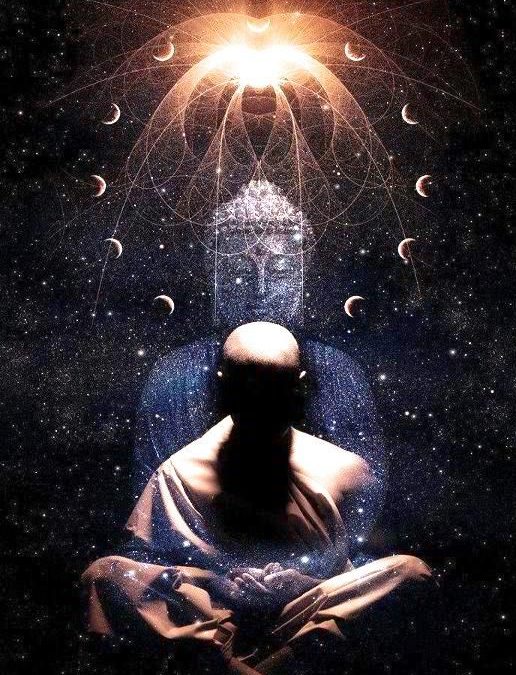My first exposure to meditation was in high school while training in the Japanese martial art of Ninjutsu. Interspersed between punching and kicking, grappling and throwing were practices of breath and awareness, which immediately captured my interest.
It was the first time my attention had been directed inward and I was humbled by the vast amount of mental activity going on in my mind — and my inability to regulate it. Unable to focus on my own thoughts for even three minutes, I became deeply curious about those who had spent decades training their attention and what they had discovered about our inner landscape and outer reality.
This pursuit guided my undergraduate studies as I spent countless hours pouring over traditional meditation treatises in the library, perhaps a sad testament to my college social life. What I discovered were comprehensive maps of human consciousness, which offered insight into my ordinary experiences and detailed descriptions of extraordinary ones — of perceiving events in distant places and times, sensing the thoughts and feelings of others, and ultimately recognizing the interconnected unity of everything.
Beyond mere descriptions, these teachings were manuals, intended to guide “inner explorers” in a stepwise fashion through the hidden depths of their own minds. I was ready to be all in and have never looked back.
Meditation is an umbrella term that encompasses a wide variety of practices from many different traditions. A common denominator amongst them is the development of self-awareness. At one level, meditation offers a methodology for becoming consciously aware of our ordinary mental-emotional experiences. Even a cursory look under our “inner hood” reveals a multitude of thoughts and emotions that come and go haphazardly, seemingly out of our conscious intention and control. In turn, this messy inner dynamic serves as the source of our desires and actions — what we think we want and what we actually do.
Modern life challenges our minds and hearts with unprecedented demands that the human system did not evolve to handle. Consequently, we are facing a growing epidemic of mental-emotional issues such as chronic stress, anxiety, depression, and attention disorders. In this complicated modern age, developing a more accurate sense of how we operate mentally and emotionally is no longer an option; it’s a requirement for self-preservation and self-actualization.
As essential as it is, discovering the day-to-day operations of our minds is just the tip of the iceberg. As those treatises that I discovered in Widener Library lay out, each and every one of us possesses the necessary hardware and software for extraordinary experiences. As we learn to quiet the inner noise of thoughts and emotions, deeper layers of calm, ecstasy, and transcendence reveal themselves. Discovering these deeper states and what they reveal about ourselves, other conscious beings, and the world around us is the highest meaning of self-awareness and the ultimate payoff of becoming a skillful meditator.
Over the next several months, these blog posts will explore the many facets of meditation. On the evening of Monday, June 25th, I will be offering a Kundalini meditation workshop in NYC, which will be a wonderful opportunity to put this discussion into practice. Regardless, as a first step on this longer journey, I encourage you to do the following simple exercise between now and the next installment in July:
Every day, set a timer for five minutes and just sit comfortably, in a chair or on the floor, with your eyes closed. Without trying to do or change anything, simply experience whatever you are consciously aware of. Sense the flow of your thoughts, emotions, and sensations in the same way that you would listen to some music. You cannot do this incorrectly!
After five minutes, take a deep breath and slowly open your eyes. Intentionally register the images that strike your eyes as though it were the first time you had ever seen anything at all. Then, go about your day.
Commit to this simple practice for just five minutes. If you’re up for it, please share your experiences in the comments section below as I’d love to hear about them. Enjoy and stay tuned!


